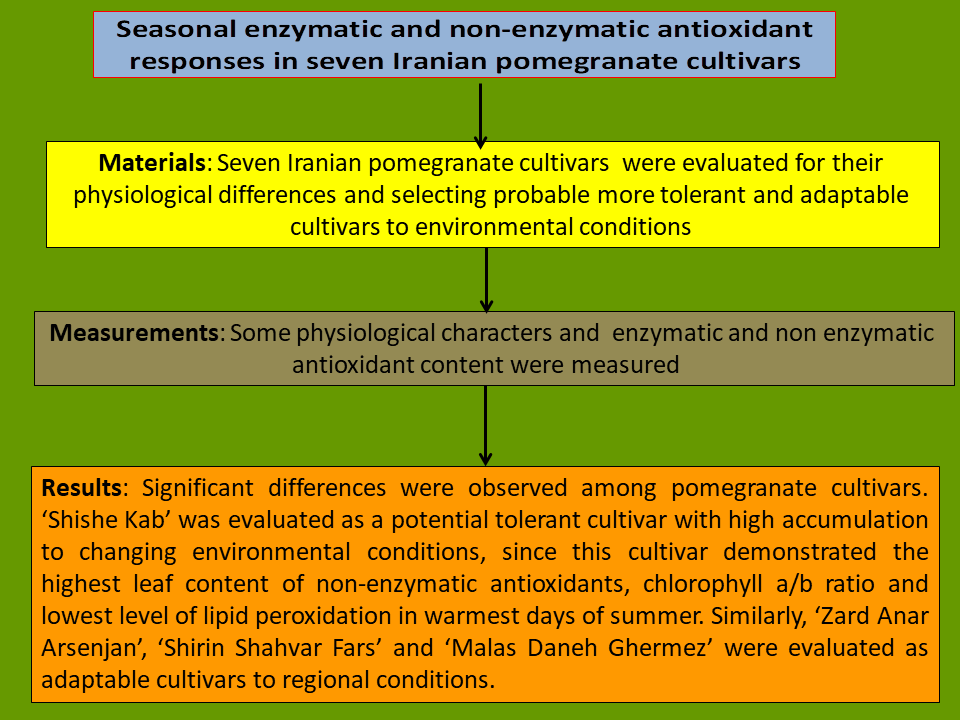Seasonal enzymatic and non-enzymatic antioxidant responses in seven Iranian pomegranate cultivars

Published 2020-05-27
Keywords
- abiotic stress tolerance,
- antioxidant,
- Punica granatum
How to Cite
Abstract
The present study was carried out as bifactorial in a completely randomized block design to compare seasonal changes of antioxidant response (enzymatic and non-enzymatic) in seven Iranian pomegranate cultivars (‘Malas Mommtaz Saveh’, ‘Shishe Kab’, ‘Zagh Aghda’, ‘Naderi Badroud’, ‘Malas Daneh Ghermez’, ‘Shirin Shahvar Fars’ and ‘Zard Anar Arsenjan’) for a deeper understanding of their physiological differences and selecting probable more tolerant and adaptable cultivars to environmental conditions. Uniform and healthy rooted (one-year) plants of seven Iranian commercial pomegranate cultivars were purchased from a commercial nursery and planted in an orchard site in Arsenjan region (one of the main hubs of pomegranate growing), Fars province, Iran. After full establishment of the trees, three rounds of sampling (fresh leaves) were conducted in spring, summer and fall. Results indicated that in summer, activity of enzymatic antioxidants and leaf content of non-enzymatic antioxidants (glutathione, α-tocopherol and total polyphenols) rose in comparison to the contents measured in the other seasons in all studied cultivars. Significant differences were observed among pomegranate cultivars for these parameters and also content of leaf pigments. ‘Shishe Kab’ was evaluated as a potential tolerant cultivar with high accumulation to changing environmental conditions, since this cultivar demonstrated the highest leaf content of non-enzymatic antioxidants, chlorophyll a/b ratio and lowest level of lipid peroxidation in warmest days of summer. Similarly, ‘Zard Anar Arsenjan’, ‘Shirin Shahvar Fars’ and ‘Malas Daneh Ghermez’ were evaluated as adaptable cultivars to regional conditions.





